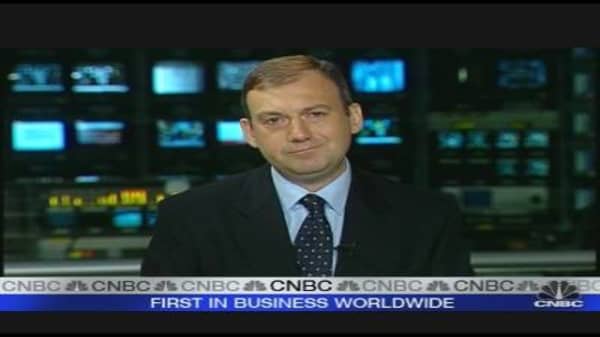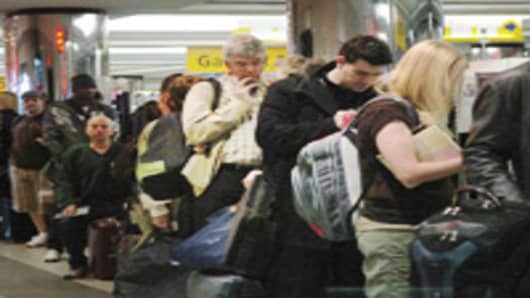Working in the business news environment has been a grim affair of late. Once rock solid institutions like Citigroup, bleeding red across their balance sheets; layoffs in the tens of thousands; and fresh unemployment figures in the hundreds of thousands ... the bad news goes on and on.
Yes, we're definitely in a recession and there's nothing good about it. Or is there?
"Don't think of 2009 as the Year of the Ox, because really, it's the Year of the Low Cost Carrier," says Tony Davis, CEO of Tiger Airways, an Asian budget carrier. Davis is of the opinion that a recession is the best time to travel and the best way to do so is with low-cost carriers (LCCs).
The Centre for Asia Pacific Aviation (CAPA) thinks so too. Its 2009 outlook for low-cost carriers (LCCs) is bright. CAPA expects low-cost airlines to overtake their bigger more established rivals in terms of traffic growth and earnings this year, as travelers opt for cheaper alternatives amid the global slowdown.
The circumstances are ideal. For one, energy costs have dropped sharply with jet fuel prices down 70 percent from its peak in July last year.
"Oil is our biggest single cost and it's gone down by two thirds," says Tiger Airways' Davis. And unlike the legacy airlines, LCCs aren't facing the hedging losses their full-service counterparts are burdened with. In fact, LCCs like Europe's Ryanair, aren't hedged at all and are reaping in the benefits of $40 a barrel oil.
LCCs are also enjoying the low interest-rate environment in Asia. Low interest rates make buying or leasing aircraft cheap and this gives LCCs the ability and flexibility to quickly increase capacity as and when its needed. In a time when most legacy carriers like Singapore Airlines and Qantas Airways are suspending or reducing flights, LCCs are doing the opposite and increasing capacity.
- Airlines—An Energy Bet Gone Wrong
- Tiger, Jetstar Chiefs Take Your Questions
Qantas will trim capacity by 2 percent this year, while its wholly-owned low cost unit Jetstar, will see a 30 percent growth in the number of seats available. Last quarter Tiger Airways boosted its capacity by 50 percent and has already sold all of those seats in the current quarter.
LCCs are also expanding their networks, with Jetstar, Tiger and AirAsiaX all venturing into the long-haul flight scene. Jetstar runs a Honolulu-Sydney flight ($1250 return) while Tiger and AirAsia X fly to destinations in Australia, India and China.
"Jetstar has done it (going long haul) quite effectively. We’re seeing AirAsia going in that direction. The rest of the world said it couldn’t be done, wouldn’t be done, in fact, it does seem to be working out quite effectively," says Peter Harbison, executive chairman of CAPA.
And then there's the issue of price sensitivity.
In a recession, cutting costs and keeping to a tight budget is the be-all and end-all for companies and individuals alike. The conventional wisdom for the business traveler is to downgrade and switch to a budget airline. The same holds true for the leisure end of the market.
The recession has made it a customer's market. Competition is fierce with the cheapest fare winning over the ever price-conscious passenger. But full-service airlines say it would be a mistake to dismiss them out of hand.
Stephen Forshaw, vice-president of public affairs for Singapore Airlines, thinks the assumption that budget airlines are cheaper is a fallacy. "We're very competitive and have a far bigger network then low-cost carriers."
Forshaw adds, "In times of difficulty, it's a question of how to stimulate demand. We're doing that by putting great offers on the market, good long-haul ticket prices and very attractive business class prices."
So, as perverse as it sounds, it would seem that a recession is a great time to travel.
"A downturn is a great opportunity to take time out to recoup and recharge. There may not be a lot of work available out there, so take advantage of this. It's a great time to see the world," says Bruce Buchanan, CEO of Jetstar Airways.
Indeed, it's a fantastic time for travelers because everyone wants your business, not just the airlines. Transportation is cheap, accommodation is very competitive and the shopping, SIA's Forshaw says is excellent. A bargain-hunter's heaven.
Forshaw adds, "There's not much you can do with two weeks of annual leave, but with a redundancy package and time to spare, there's a lot you can do and see".
It sounds morbid. But, heaven forbid, if you are put into that position, you might want to make lemonade with the lemons that you've been handed. Or in this case, take off and see the world.
- Charting Asia: Flying High & Falling at the Hedge
- Low Cost Carriers Soar Amid the Downturn
______________________________________________
(Author's Note: It sounds morbid, I know. But seriously, they're right. I speak from experience. During the downturn in 2003, I found myself without a job. Instead of doing the sensible thing and looking for a new position, I decided to throw caution in the wind and just take off on what Australians describe as a very long walk-about. I call it the year-long excursion of gainful unemployment.
I won't go into the details, but say this with the caveats that at the time, I didn't have a mortgage and wasn't in debt. One round-the-world business class ticket. Sixteen countries. Countless stops. Sidetrips on EasyJet and Ryanair. Nine months of wandering on $12,000. The experience -- priceless.)




